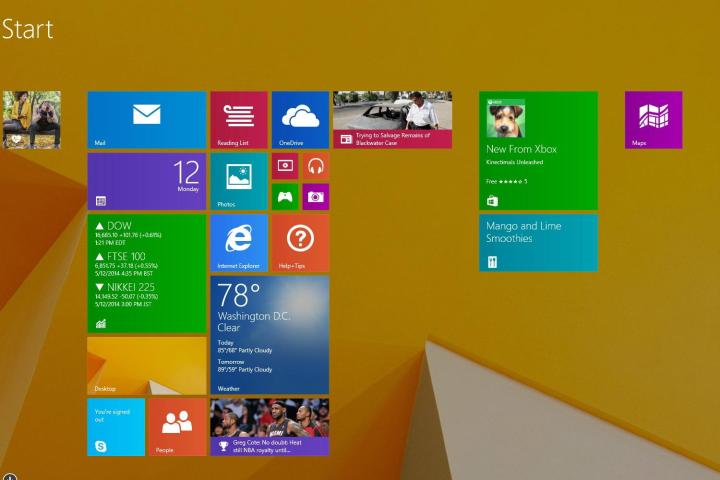
The Chinese government has decided to ban the use of Windows 8 on its computers because of Microsoft’s decision to end support for Windows XP back on April 8. The move could be a significant blow to Microsoft’s business in the country.
Using a translation browser add-on, we were able to read the Chinese government notice that ordered the ban. The notice was compiled by the Central State Organs of Government Procurement Center, according to the translated text, which to us sounds like a body that specializes in equipment acquisitions for state agencies.
“All computer products are not allowed to install Windows 8 operating system,” the notice reads. We assume that this also applies to Windows 8.1, though the notice doesn’t make any reference to the refreshed version of Microsoft’s dual-UI operating system.
This is just the latest chapter in a tense relationship between the U.S. and China. The governments of both nations have regularly traded barbs pertaining to cyber-espionage, with each accusing the other of hacking into government networks illegally.
So, what will the Chinese government use in place of Windows XP, assuming that a significant migration effort takes place? Sure, there’s Windows 7, which will continue to receive support until 2020, but don’t count out Chrome OS. After all, the precedent has already been set, with UK government agencies swapping out their Windows XP PCs for Chromebooks. The London Borough of Barking and Dagenham cited significant cost savings as a reason for the switch.
Despite the fact that Windows XP is no longer supported, the operating system is still widely used throughout China. As of last month, roughly 70 percent of China’s 200 million PC users were running Windows XP-powered PCs.


